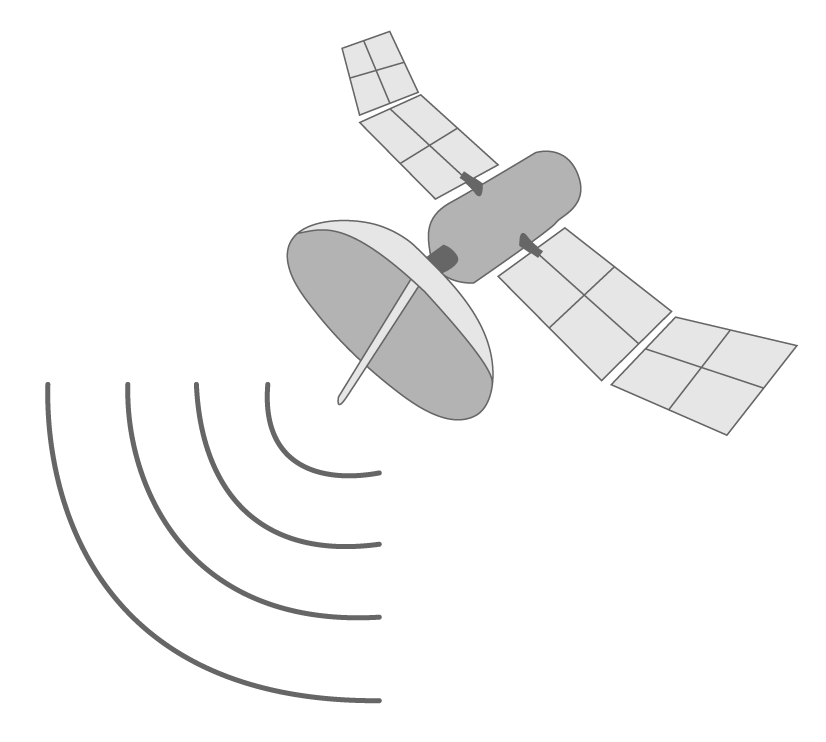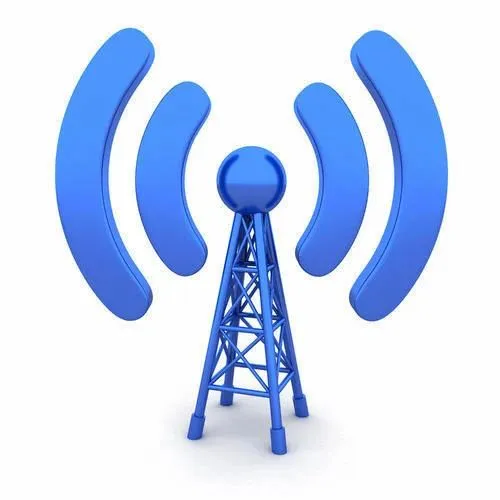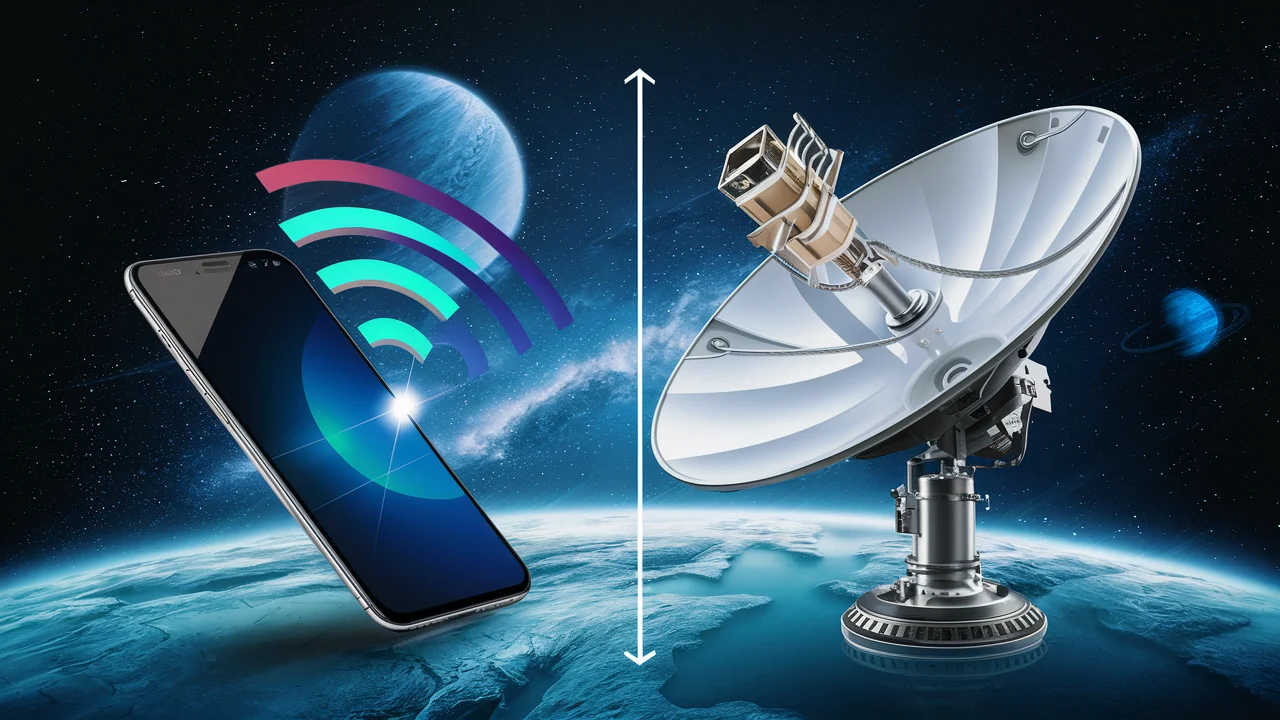Mobile Hotspot vs Satellite Internet; both offer limited speed and data, but we recommend you go with satellite internet. Satellite internet is a great choice for those who live in rural areas and require a reliable internet source, while mobile hotspot is a better option if you have good cell coverage in your area and need portable internet or mobile hotspot devices.
Satellite Hotspot vs. Mobile Internet Speeds
Behind the quality of an internet connection, there are two factors’ Speed and Latecy’.
Speed
is expressed in megabits per second( Mbps) or terabits per second( Tbps). Speed indicates how fast your internet connection sends and receives data from your device.
Latency
This refers to how long it takes for data to travel from your computer to an internet server and vice versa. Lower latency means faster data transfer.
A mobile hotspot device provides a download speed reaching 100 Mbps and an upload speed of 50 Mbps, which can be participated among multiple users. The latency is minimal, approximately 60 milliseconds, which ensures reliability for everyday tasks like sending emails, streaming music, and conducting high-definition video conference calls.
From the best Satellite systems with a clear sky and a good location, you can receive up to 250 Mbps. The drawback of satellite internet is its latency, which can range from 580 to 630 milliseconds because of the distance data has to travel between the orbiting satellites and your dish or device.
What is Satellite Internet?

Wherever there is a clear view of the sky for your satellite dish, Satellite internet offers data connectivity. Download speeds can range from 20 Mbps to 250 Mbps and it depends on service providers.
While there’s no cap on regular data operation, Starlink introduces a concept called” priority data,” which is a new feature. Priority data ensures that your connection speed receives preferential treatment over standard data, performing like a fast lane. Starlink allows users to buy up to 2TB of priority data for” one place” tariffs or over 5TB of mobile priority data for” on the go” tariffs, with mobile priority data.
After installing the satellite dish and aligning it rightly, you get access to broadband speed through a modem or Wi-Fi router, like a standard string internet system. Still, satellite internet users may face challenges similar to poor download speeds, considerable latency, and data operation limits. Despite these downsides, for numerous businesses, satellite connections are a pivotal option, providing the only possible means of achieving dependable data speed and connectivity.
Satellite Internet Pricing
The biggest weakness of satellite internet is pricing. At any given speed, you’re likely to pay further for satellite internet service. A 25 Mbps string package could bring between $25-$45 per month, while that same with satellite could run between $50-$160 per month, depending on your provider and how important data you need each month. It’s the price you pay for all that availability per month and that is too expensive.
Is satellite internet the right choice for you?
Which internet source is the best choice for you, depends on some factors. Satellite internet might be a good choice for you if any of the following apply to your living situation:
- You need an internet connection in a remote area.
- You intend to use the connection at home.
- You don’t do a lot of online gaming.
What is a Mobile Hotspot?

Hotspot is another internet option that is available wherever you get a cell signal. You can create one using your current cell service and phone or you can pay for a device that will function similarly to a hotspot.
Wherever a robust cellular signal is present, A mobile hotspot offers internet connectivity. You can get an internet hotspot using your smartphone and share the connection with other devices, such as tablets and laptops. Provider-specific details, including prices, speeds, and data caps, vary significantly, so it’s essential to carefully review the terms before connecting to a new mobile device. It’s worth noting that even if you have an unlimited data plan with your mobile service provider, it cannot extend to hotspots.
For those living in areas with consistently strong 4G LTE or 5G cellular service available, a dedicated mobile hotspot hub is an excellent solution for maintaining a connection with clients, and co-workers, regardless of your location.
The widespread adoption of hotspots as a mobile internet solution is attributed to their accessibility, with many smartphones now featuring built-in hotspot or tethering capabilities. However, regular use of your smartphone as a hotspot may lead to a noticeable battery drain on your device.
Hotspot pricing
Like satellite plans, those tailored for hotspots come with high costs. These plans also have a tiered structure, which is based on data caps rather than speed. For individuals who extensively use the internet, it’s easy to exhaust the allocated data rapidly. This situation may necessitate upgrading to a larger plan or incurring additional charges for exceeding the data limit.
Is it a hotspot for you?
A hotspot might be the best option for you if the following apply to your living situation:
- You need to use your internet connection on the go.
- You travel frequently.
- You don’t use your connection for data-intensive tasks like streaming.
Faq’s
Which is better Satellite internet or hotspot?
Satellite internet is the best choice for people who live in rural areas and need a reliable internet source, while hotspot internet is the best option if you have good cell coverage in your area and need portable internet.
Is satellite internet better than mobile broadband?
If you have 4G coverage where you live, you might be better off looking for a mobile broadband deal. However, if you’re in a very rural area, 4G might also be hard to come by. Then satellite internet will be the better option.
Is satellite internet good or bad?
Satellite internet is a good option if you live in a rural area that doesn’t provide access to fiber. However, expect to pay more for satellite internet with lower speeds and high latency than you would for other internet technologies offered in urban and suburban areas.
What are the disadvantages of satellite internet?
Higher latency and slower speeds, which interfere with online gaming and real-time stock market trading, are the biggest drawbacks of satellite internet. Some satellite plans also have data restrictions.
What are the disadvantages of mobile hotspots?
Mobile hotspots are not that common anymore due to the slow speed of mobile data connection (where 4G signal could receive hardly), the increased data usage, and the high battery usage.
How far away will a mobile hotspot work?
Within about 10 meters range of the hotspot, A mobile hotspot works by converting a 3G, 4G, or 5G signal to a Wi-Fi signal and vice versa. It creates a Wi-Fi network that can be shared by multiple devices.












